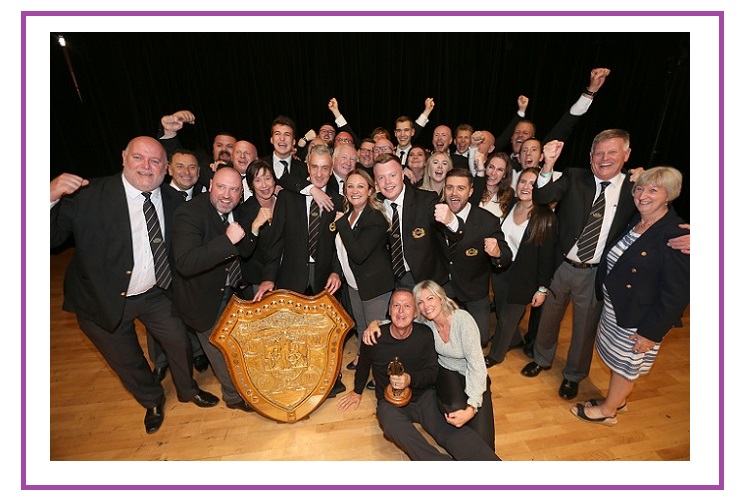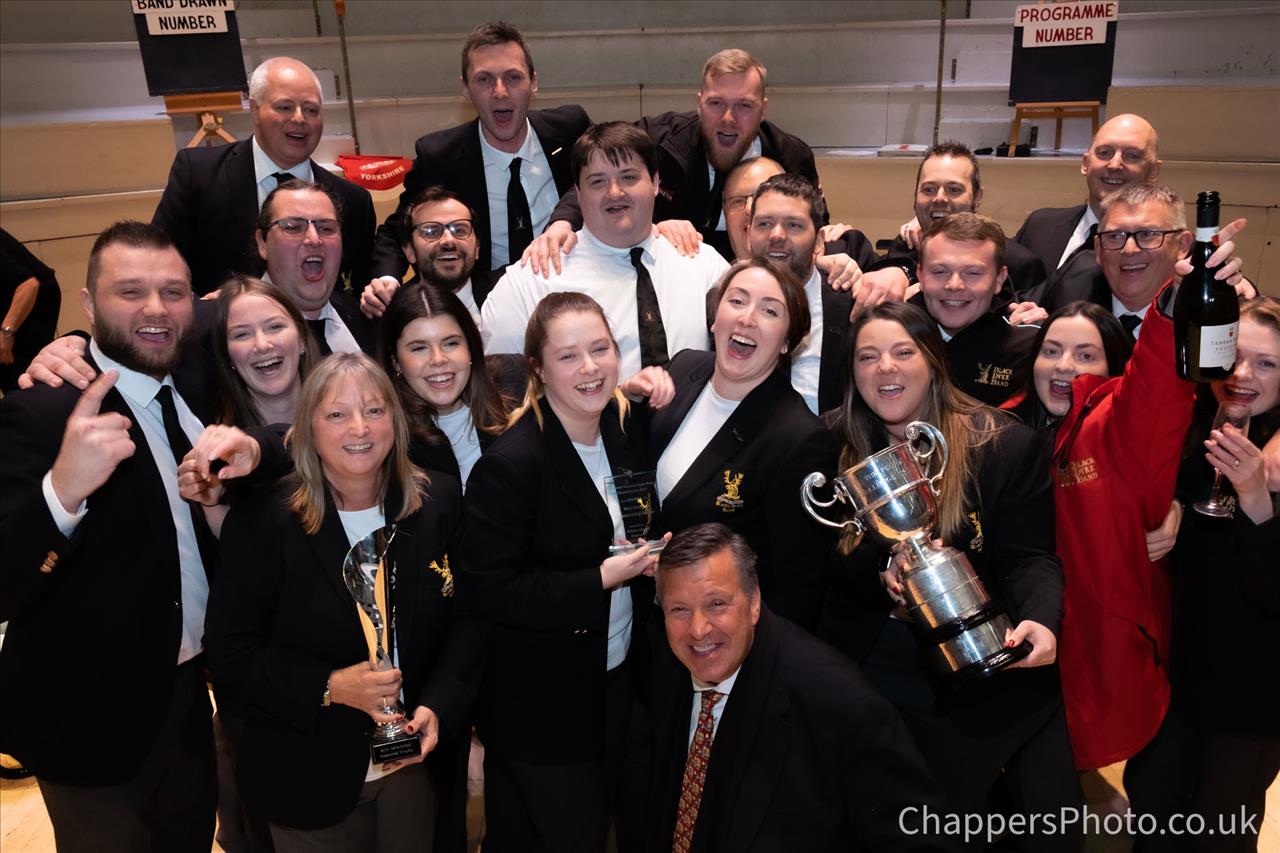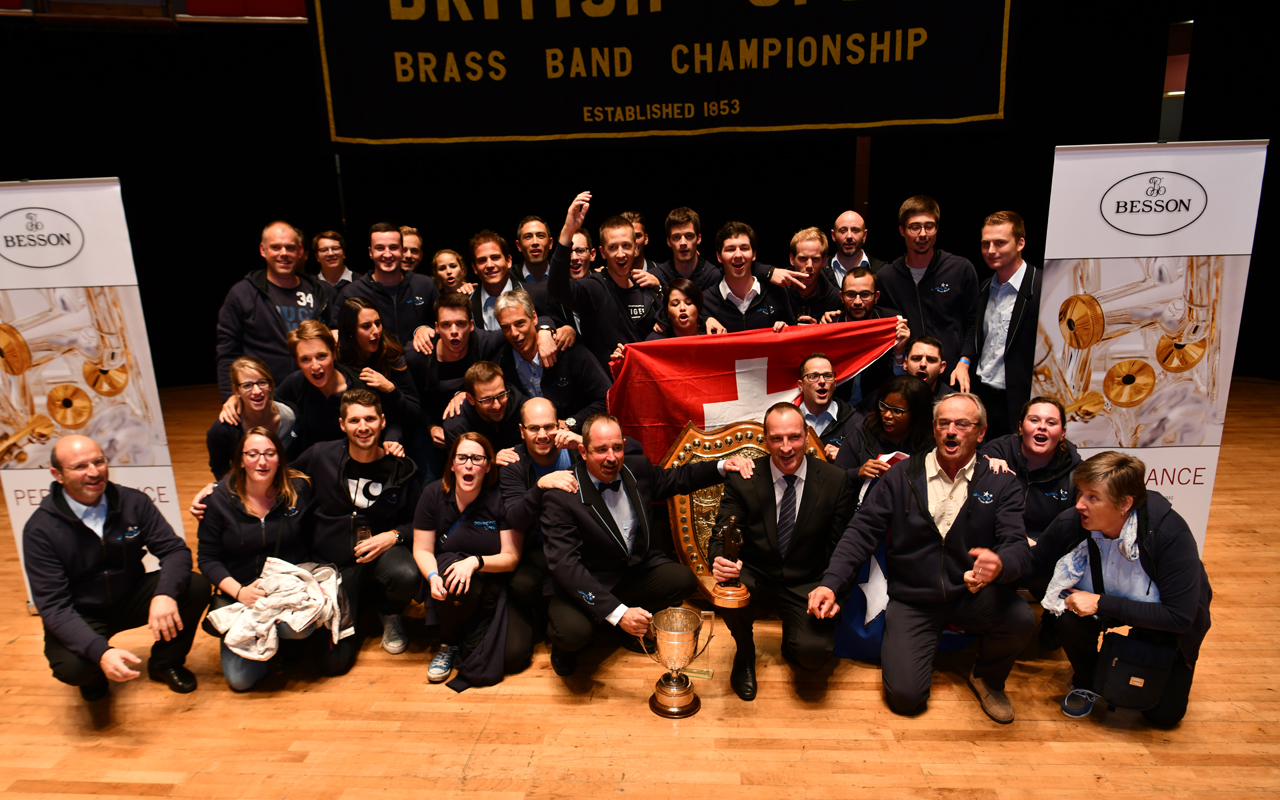
According to the weather forecasters, people heading to Birmingham for the 169th British Open Championship on Saturday could well find themselves sweltering under the unforgiving glare of an unseasonable desert sun.
It seems appropriate though given the musical landscape evoked by Thierry Deleruyelle’s ‘Sand and Stars’ – a work that also ensures that the heat will be on the 18 contenders taking to the Symphony Hall stage.
It's a composition inspired by resilience – a quality that will have to be drawn on like a water bucket in a deep oasis well if playing stamina is to remain refreshed enough to master what has universally been seen as one of the sternest tests at the contest for many a year.
It's a composition inspired by resilience – a quality that will have to be drawn on like a water bucket in a deep oasis well if playing stamina is to remain refreshed enough to master what has universally been seen as one of the sternest tests at the contest for many a year.
Resilience too from the contest owners and organisers – especially after last year’s event which was held in the immediate aftermath of the shock of the news of the death of Queen Elizabeth II.
Quality
That this year’s contest is once again close to being sold out (around 2,000 seats) is testament to the attraction it has for both competitors and listeners alike - the quality of the competitive field mirrored by the surroundings for the event itself.
However, just like the best laid flight plans of Antoine de Saint-Exupery, the unexpected cannot always be accounted for.
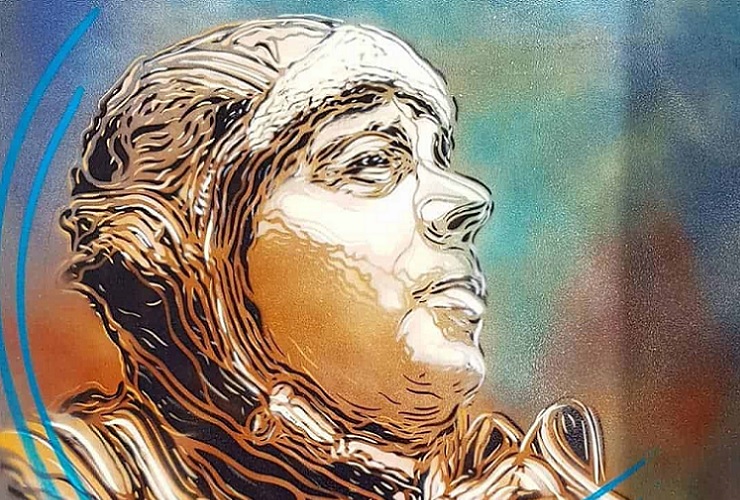
The future direction of travel for the British Open and the Spring Festival is very much one that requires compass bearings set for cooperation and consideration to go with the sense of adventure and inventiveness.
As we said in the review of the test-piece, whoever triumphs from the heat of battle will thoroughly deserve their celebratory drinks in the bar as much as John Mills in the classic film ‘Ice Cold in Alex’. It could be a long, hot, sweaty day.
Hope
Much like Saint-Exupery, all 18 contenders set off in hope rather than cast-iron expectation – although the degree of optimism as to whether they are really contenders to hold aloft the famous Gold Shield will have been severely tested in their preparations in the past few weeks.
Some more than others will know that they cannot afford performance fragilities or end fires that will condemn them to try and have to navigate their way to salvation from the Grand Shield in 2024. Nobody will be taking anything for granted.
Defending champion
Certainly not Brighouse & Rastrick, who waited 44 years to finally find their British Open salvation last year.
The last time a West Riding defending champion retained the title was in 1933 under the great William Halliwell, so even with Prof David King at the helm it will take some doing.
Confident, driven and talented, few bands are better equipped to master the desert inspired musical terrain to do it though (and the Australian has also never won two years in a row). It would be one heck of an achievement.
Determined rivals
Former champions, all looking to end lengthy spells without an Open win, are determined to stop them.
Last year’s runner-up Foden’s last triumphed in 2012 – somewhat surprising given their successes elsewhere, whilst victory would also be a ‘first’ for MD, Russell Gray. They could well be the band to beat.
Anything more than one year without a major piece of silverware is a real surprise for Cory too – their last victory coming at the 2022 European here in Birmingham.
Cory record
Anything more than one year without a major piece of silverware is a real surprise for Cory too – their last victory coming at the 2022 European here in Birmingham.
Philip Harper’s band have a truly incredible record at the Open since 2012 (just once outside the top-three in coming 4th last year), and it would be foolish in the extreme to suggest they are not one of the short-priced favourites to return to the top of the podium again.
In contrast their counterparts Tredegar have had a somewhat inconsistent journey at the contest since returning in 2010. Two wins (the last in 2013) and two top-six finishes (5th last year) under Ian Porthouse interspersed with a few midfield finishes, although over the last two years they have been right in the mix at all the major championships.
Queensbury return
The last time the trophy resided in Queensbury was 2014. Recently though Prof Nicholas Childs has rejuvenated Black Dyke with astute additions to an experienced ensemble.
As they showed at the Yorkshire Area (above) and especially at the Europeans in Malmo, they are close to being back to their major title winning best again.
The three other past winners since the turn of the Millenium are Valaisia, Grimethorpe and Hammonds (although it was under their former name of Yorkshire Building Society).
Swiss watch
What Valaisia will be on show on their return for the first time since their 12th place finish in 2019 will be interesting to hear.
When they won in 2017 they were simply stunning – and almost equally so the following year. Then they were arguably the best band in the world.
When they won in 2017 they were simply stunning – and almost equally so the following year. Then they were arguably the best band in the world.
However, their place at the apex of major contesting has been supplanted by rivals Treize Etoiles of late (now both European and Swiss National Champion), so they travel with something of a point to prove.
Bach for the future
So too Grimethorpe, 6th last year and winners in 2015. Since then, they haven’t really set the world ablaze (although they have maintained a very solid record at Symphony Hall), but there has been a marked consolidation about them in the past year or so.
Michael Bach is a conductor who can certainly create something special so they could be a bit of a dark horse to do well again.
Michael Bach is a conductor who can certainly create something special so they could be a bit of a dark horse to do well again.
That leaves Hammonds (who last won in 2003 and was 10th last year).
In the last year or so they have emerged as a fine elite level contender at major championships (London and Bradford especially) and boosted by their impressive outing at the French Open in June they are riding a crest of a wave under Morgan Griffiths.
Overall excellence
No debutant bands this year, although such is the overall standard of excellence there could well be a first time winner.
Chief amongst them could well be Flowers who have a brace of top-six finishes since returning in 2014 and is an impressive major contest contender under Paul Holland. They were excellent at the Nationals last year and won the French Open in the sun earlier this year (above).
12th last year means they can’t take anything for granted up or down, but you feel a charge towards the top-six or better is on their starry horizon.
Shock
Fellow West of England contenders Aldbourne (below) shocked everyone last year in coming third, but as they showed at the National a few weeks later, they are certainly not rank outsiders to make a mark again, especially led by Ivan Meylemans.
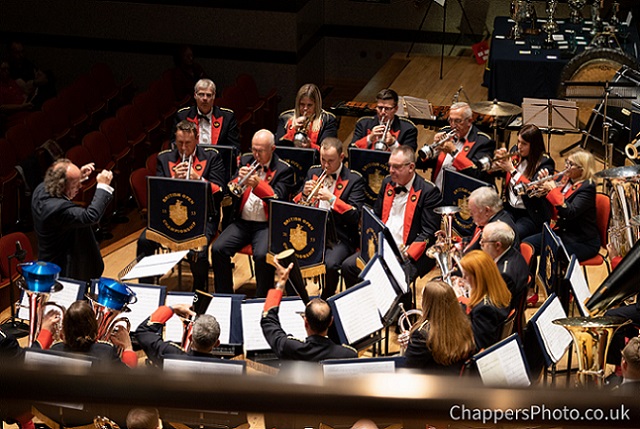
The other band to shock was Northop Silver, as the Welsh band finished 9th. That gives them some leeway after a period of rebuilding of late and not making it to the starting line for the Welsh Regional Championship in March.
this year they have gone with another outstanding young talent in David Morton who has made a huge impression since taking up the baton in Norway.
There hasn’t been a Scottish winner of the British Open yet, and whilst the cooperation band may not end that wait this year, as they showed on their last appearance here in coming 7th, they are more than capable of making their mark.
That performance came under euph star Glenn Van Looy (playing with Valaisia this year) and this year they have gone with another outstanding young talent in David Morton who has made a huge impression since taking up the baton in Norway.
Midfielders
Midfield finishes are no guarantee of survival at the contest (NASUWT Riverside were relegated after coming 13th last year), so Leyland led by Thomas Wyss will be determined to build on the solid qualification achieved at the North West Area to rid themselves of any anxiety.
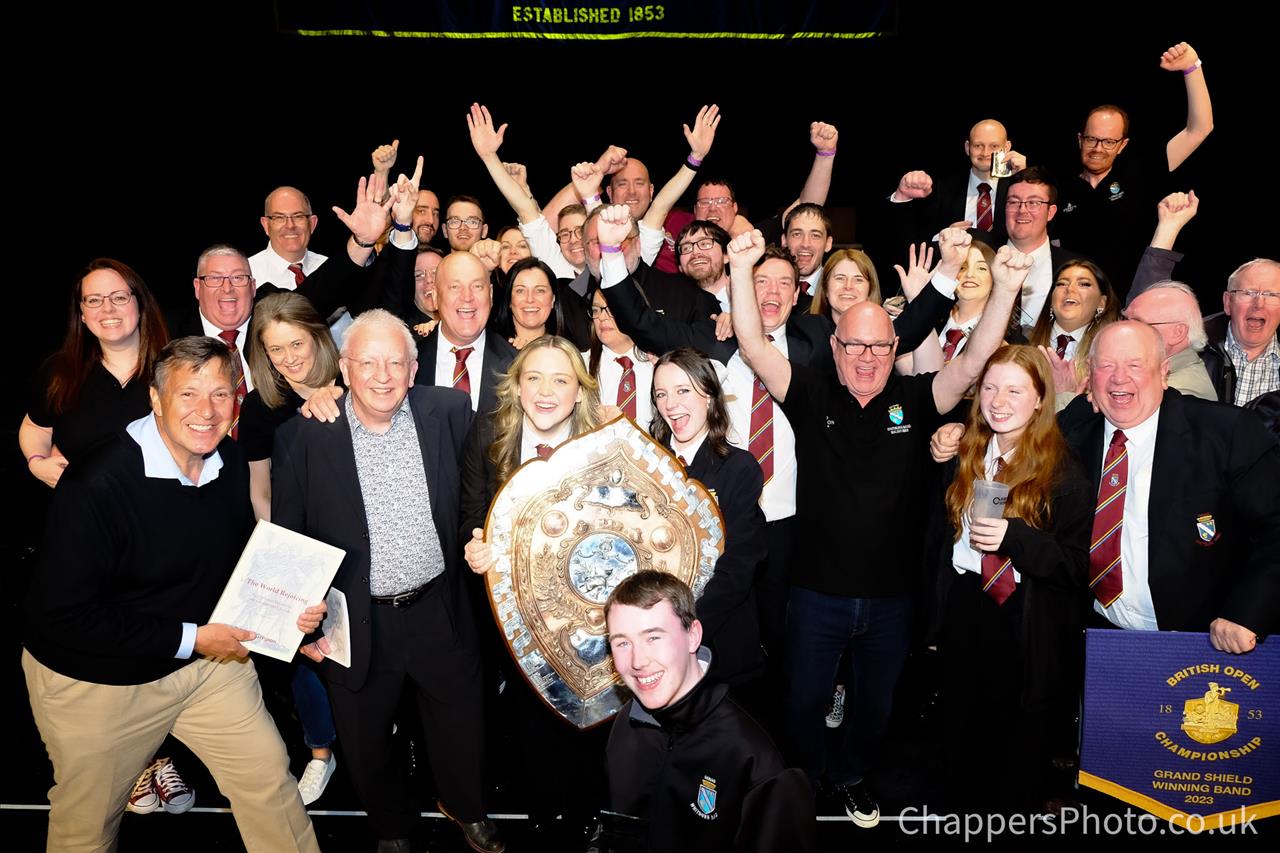
WFEL Fairey (15th last year) who have been ever present at the contest since 1974 know that they will have to perform well if they are to claim a top-10 finish or better to perhaps ensure their survival. The same goes for Desford Colliery (17th), if they are to continue their Open run of appearances for a 20th year in 2024, and Rothwell Temperance who ended 18th.
All three though are bands that have the inherent ability to lift themselves into the highest echelons of the results under MDs, Phil Chalk, Allan Withington and David Roberts.
That just leaves the two bands that deservedly found sanctuary (and the safety of at least another year) after qualifying from the Grand Shield.
Whitburn (above) showed at the Europeans that they can certainly mix it with the very best, as they link up with the experienced Luc Vertommen for their appearance, whilst Hepworth return to the contest for the first time since 2014 under one of the movement’s rising conducting stars in Ryan Watkins.
Iwan Fox



